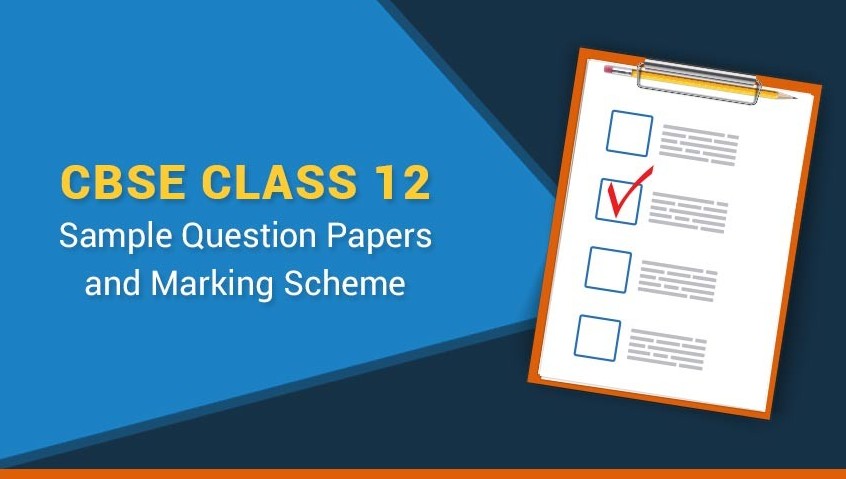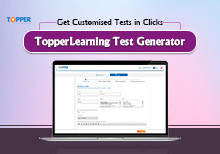CBSE Class 12 Sample Question Papers and Marking Scheme

Key takeaways for the revised Accountancy, Business Studies and Economics exam papers
By 24th Sep, 2019 | 11:39 am
ShareThe Central Board of Secondary Education (CBSE) has released the sample question papers along with the marking scheme for the CBSE board exams 2020. You can download them on the official website http://cbseacademic.nic.in/
Benefits of Sample Papers:
- Ample time to analyse and practise before the board exams
- Anticipate the structure and typology of questions
- Formulate an effective study plan
- Convenient to prepare and frame apt answers after knowing the marking scheme
In this article, we will look at the key takeaways of the CBSE sample papers and marking scheme for Accountancy, Business Studies and Economics.
Accountancy
The blueprint of the Accountancy board paper brings with it a number of changes which require students to maintain an effective balance between Accounting concepts and their applicability wherever required.
Key observations of the sample paper and marking scheme released by CBSE:
- The unit-wise weightage in Part A and Part B has been changed.
Weightage for the units ‘Accounting for Companies’ and ‘Cash Flow Statement’ has increased. Weightage for the units ‘Accounting for Partnership Firms’ and ‘Analysis of Financial Statements’ has decreased. - The chapter/unit weightage has not been strictly followed in the sample paper. So, all the chapters are equally important. To ensure more marks in the exams, no chapter can be given lesser importance or can be skipped while studying.
- The 1-mark questions mainly cover concept-based questions, MCQs, true or false, match the pairs and fill in the blanks. These questions will give students an opportunity to score maximum marks; however, in-depth knowledge of concepts is required.
- The number of questions has increased from 23 questions to 32 questions. This makes the Accountancy paper lengthy as compared to last year.
- There will be an internal choice for questions carrying 3 marks, 4 marks, 6 marks and 8 marks. All 8-marks questions will have internal choice.
While preparing for your Accountancy paper, it is essential to thoroughly understand the Accounting concepts. Solve and practise as many questions as possible, as this will help to complete the paper within the allotted time.
Business Studies
The blueprint of the Business Studies board paper has undergone minor changes, but it will nonetheless have an impact on the learning and studying pattern of students.
Key observations of the sample paper and marking scheme released by CBSE:
- The number of questions has increased from 24 questions to 34 questions.
- More emphasis is given to concept-based questions to test the evaluative and thinking skills of students.
- The 1-mark questions mainly cover MCQs, true or false and fill in the blanks which are mostly concept-based questions, unlike the direct questions asked in previous years’ papers.
- An increase in the number of objective-based questions gives students an opportunity to score more marks, but students will have to study and understand the concepts in depth.
The Business Studies paper is expected to have tricky, evaluative or application-based questions. To tackle these, students must have a deep understanding of all the important concepts.
Economics
The blueprint of the Economics board paper has undergone a major change. Indian Economic Development has been introduced as a sub-subject along with Macroeconomics this year. So, students will have a combination of theory- and numerical-based questions.
Key observations of the sample paper and marking scheme released by CBSE:
- The number of questions has increased from 24 questions to 34 questions.
- The 1-mark questions in both Macroeconomics and Indian Economic Development mainly cover concept-based questions, MCQs, true or false, match the pairs and fill in the blanks. These questions will help students score more marks if they’ve understood the concepts well.
- The Economics paper is expected to have majority of subjective/theory-based questions. So, proper framing of subjective answers is essential.
- Questions in Section B (Indian Economic Development), which is a new introduction to the curriculum, not only comprises complete theory-based questions but also covers questions related to trend analyses, important dates and timelines.
- The CBSE blueprint also mentions that Creative Answer type questions will be asked in questions 29, 32 and 34, all of which are questions from Indian Economic Development.
While preparing for the Economics paper, students need to thoroughly study the concepts, dates and terms which will help them in the objective questions. Practising questions which require analysing, understanding and interpreting of economic data is important.
One can easily gauge that in-depth understanding of concepts and solving of diverse questions are essential to answer objective, subjective or numerical questions in all three subjects.
To know more about the major changes in the CBSE Class 12 Commerce curriculum, visit http://bit.ly/2kNqh9r
For any queries, you can contact us on 1800-212-7858.
More from Education
Important Resources
- Education Franchisee opportunity
- NCERT Solution
- CBSE Class 9 Mathematics
- NCERT Solutions for class 10 Science
- Sample Papers
- CBSE Class 9 Science
- NCERT Solutions for class 10 Maths
- Revision Notes
- CBSE Class 10 Hindi
- CBSE Class 10 English
- CBSE Class 10 English
- CBSE Class 10 Social Studies
- CBSE Class 10 Science
- CBSE Class 10 Mathematics
- Career In Science After 10
- Career In Commerce After 10
- Career In Humanities/Arts After 10
- NCERT Solutions for Class 10
- NCERT Solutions for Class 11
- Business Studies Class 12 CBSE project





